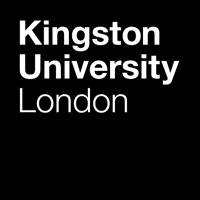fees waived
Biomedical Science, BSc (Hons)
Kingston University, United Kingdom
Ranking in UK
Biology
Biomedical Science
Biomedical Science
Costs
food & rent S$24.5k / year
Entry requirements
Scholarships
11 - 20 available
21 - 50 available
Unlimited quantity
Unlimited quantity
Limited quantity
Information
Code
Code
Intakes
Website (External)
Programmes
Information
Duration
2029
Kingston's Biomedical Science degree is accredited by the Institute of Biomedical Science (IBMS), offering hands-on experience in research or diagnostic laboratories and opportunities for placements in NHS labs, research institutes, or drug companies. Recognised with a Teaching Excellence Framework (TEF) Gold rating, the course covers essential topics like cancer screening, HIV diagnosis, blood transfusion, immunology, and diseases such as cancer and heart disease. Students explore biological, chemical, molecular, and cell biology principles, along with laboratory techniques, and undertake independent research projects tailored to their interests.The program is currently under revalidation to enhance student-centred learning and align with industry needs, embedding future skills like problem-solving, digital competency, and adaptability. It prepares graduates for careers in science, health, education, and postgraduate studies, with modules such as Pathobiology, Clinical Chemistry and Haematology, and Clinical Immunology. Assessment includes lectures, practicals, coursework, presentations, and exams, ensuring recognition from professional bodies.
Please note that this is an indicative list of modules and is not intended as a definitive list. Example modules – Pathobiology (Biology of Disease). – Clinical Chemistry and Haematology (Blood Sciences). – Clinical Immunology and Medical Microbiology. For a full list of modules please visit the Kingston university course webpage.
A local representative of Kingston University in Singapore is available online to assist you with enquiries about this course.

